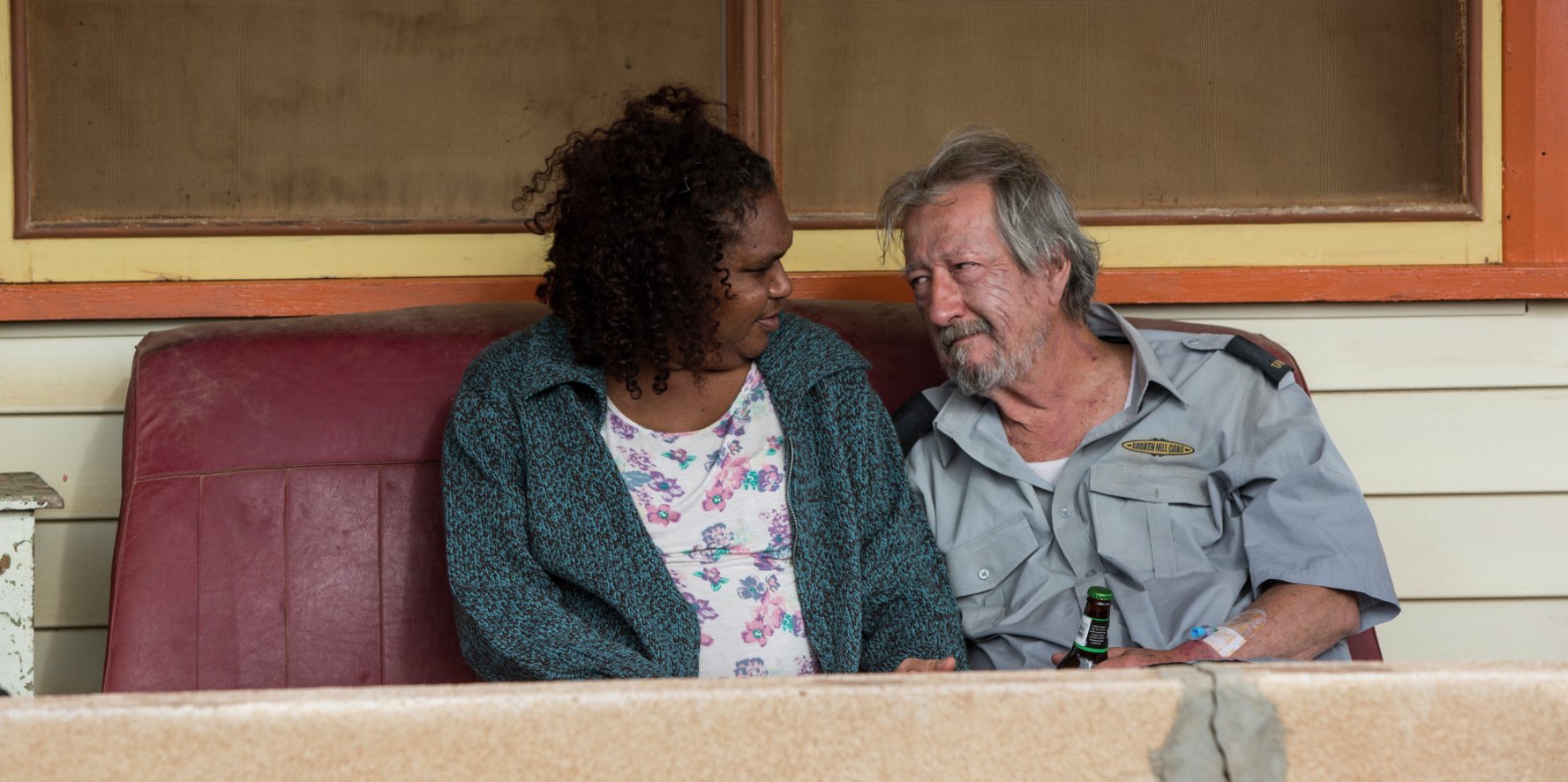

What defines the film is Rex’s struggle it's heartbreaking and uplifting. A standout performance is delivered by Rex’s neighbour and lover, Polly (Ningali Lawford-Wolf). While some dialogue wanders close to cliche, it always feels emotionally justified. The film strikes that delicate balance between token “Australiana” and endearing, believable characters. “Reg and the company of actors and designers really created the stage work together,” says Sims. The combined efforts of production design and performance are clear. At moments, the earth’s heat shimmers mystically. Endless skies dominate each frame as the red road whips incessantly beneath Rex’s taxi. Last Cab to Darwin dazzles with its cinematography. “We worked incredibly hard to make the script as strong and cohesive and cinematic as possible.” They are more like cousins than siblings now.” Sims wrote the screenplay in collaboration with Cribb. “The film has evolved a long way from the original stage version. “There was heaps of pressure,” Sims says. Last Cab to Darwin was adapted from Reg Cribb’s 2003 stage play. This is Sims’ third feature – he has previously directed Last Train To Freo and WWI epic Beneath Hill 60. Road movies are less iconic in Lichtenstein.” Sims says, “I think we respond so strongly to the genre here because of the sheer size and scale of our country – the sense that you can’t grasp it unless you travel over it. Last Cab to Darwin draws considerable influence from the American road-film. “The ‘journey' as allegory for life has been with us since the Iliad and before,” says director, writer and producer Jeremy Sims. It’s a simple, heart-wrenching premise, based on the true story of Broken Hill taxi driver, Max Bell. He heads north, seeking the help of euthanasia advocate Dr Nicole Farmer (Jacki Weaver). He looks numb, and mumbles, “If wishes were horses, beggars would ride … ” Rex forgoes wishing and self-pity, setting off on a 3000-kilometre journey across Australia. Rex (Michael Caton) is given a terminal prognosis, which could’ve been treated earlier had they known.


 0 kommentar(er)
0 kommentar(er)
